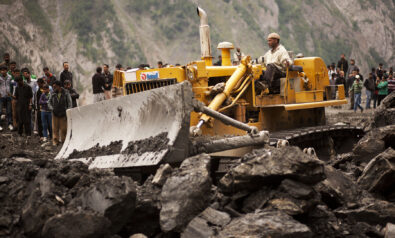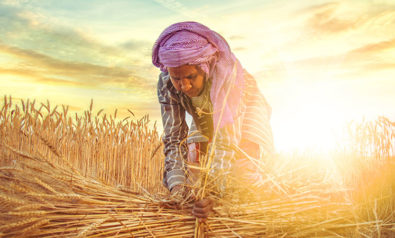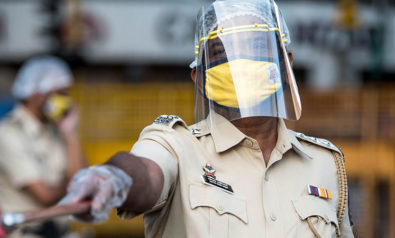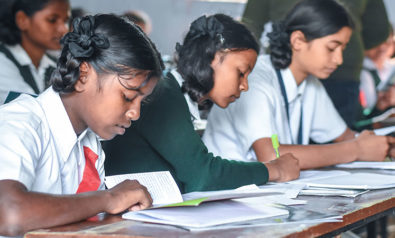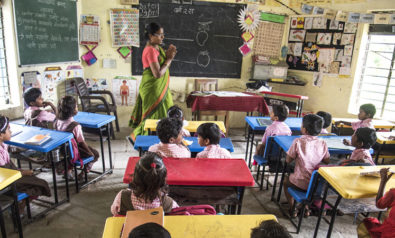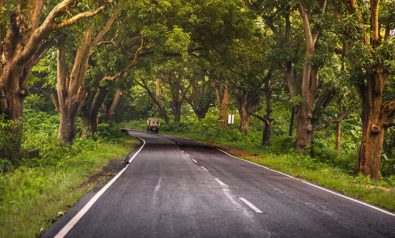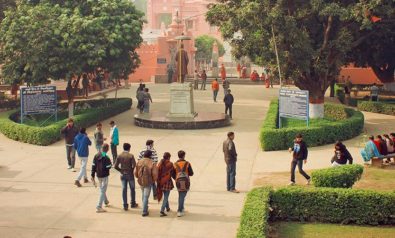In September, India passed three bills that immediately led to protests by farmers demanding to repeal the legislation. The new laws seek to remove the government’s minimum support price for produce that shielded India’s farmers from free-market forces for decades. In allowing the farmers to set prices and sell directly to businesses, the reforms are pro-market and reflect the changing times. In a globalized era where the free market is king, India has to open its agricultural sector to the world sooner or later in order to take advantage of global demand for produce.
Agriculture Is India’s Ray of Hope in Time of Crisis
In these transitional times, ensuring farmers’ incomes through price policy is not practical. It will only lead to inefficiency, causing India to lose the competitive advantage in an ever-expanding global economy. However, with over 40% of the country’s workforce employed in the agriculture sector, it is the government’s responsibility to ensure farmers’ livelihoods. Most of the countries are shifting from price policies to income policies to ensure farmers’ incomes by adopting universal basic income (UBI) schemes.
Targeted Basic Income
Universal Basic Income is a regular, unconditional cash payment given to every household in the country. The idea of UBI originated in the West, dating back to as far back as the 16th century, to ensure a minimum guaranteed income to every citizen. Most of the developing countries are also using a modified form of UBI to ensure farmers’ income to protect them from the looming threat of fluctuating and declining prices.
The main advantage of the scheme is that it does not intervene in the functioning of agricultural markets and allows free trade. Unlike loan weavers, it does not impair credit culture and, unlike minimum support prices for crops, it does not encourage the cultivation of one crop at the expense of another. It also avoids complex and costly administrative procedures and lethargy in implementing schemes like procurement of grains under India’s Public Distribution System.
International experience shows that UBI makes people happier and healthier, meaning that everyone benefits. A modified version of the UBI scheme, a targeted PM Kisan Samman Nidhi (PM-KISAN) scheme, was already in place in India. Under PM-KISAN, every season, a specified sum of money is directly transferred to farmers’ bank accounts based on land records. Many state governments are implementing similar targeted basic income schemes, including Telangana, Andhra Pradesh, Karnataka and Odhisa.
PM-KISAN covers all of India. It is benefiting over 120 million farmers who own less than 5 acres of land with a total budget of $9.8 billion per year on the assumption that land records can be used as a means for verification to identify farmers. The main opposition party, Indian National Congress, has promised a similar scheme in its 2019 election manifesto. The Minimum Income Guarantee Scheme, formally the Nyuntam Aay Yojana, was designed to help 50 million “‘poorest families’ by assuring them a guaranteeing minimum income of ₹6,000 per month or ₹72,000 a year.” All households with a monthly income below 12,000 rupees ($163) would be eligible, taking the total budget to an estimated to be $48.9 billion, or 1.9% of the GDP.
Shifting Policy
As a first step in shifting from price policy to income policy, PM-KISAN must cover basic input costs like fertilizer irrigation and pesticides, as well as cover periodic losses due to floods, droughts and price fluctuations. However, the scheme should not become an excessive burden on the exchequer. It seems that the benefits under some of the state schemes like the Rythu Bandhu in Telangana achieve much better results by transferring 10,000 rupees per acre to each farmer.
If all of India’s 28 states were to implement a Rythu Bandhu-type scheme in its current form, it would cost 1.85% of the GDP. If these schemes are to remain sustainable in the long run, they need to be targeted well. Small farmers should get at least equal if not more benefits than bigger farmers, whereas Rythu Bandu is progressive in benefits, with bigger landowners getting more money than the small farmers. The means for verification needs to be standardized, with no opportunity to inflate the beneficiaries by local officials.
Some farmers’ organizations complain that PM-KISAN or similar schemes are benefiting absentee landlords rather than real farmers. These schemes are prone to errors. The inclusion error means that a proportion of those selected under a scheme are not really farmers, like absentee landlords with 40 acres of land getting benefits of 400,000 rupees per annum under Rythu Bandhu. The exclusion error occurs when a proportion of those intended to benefit are excluded from the scheme as a result of improper design. For instance, under Rythu Bandhu, tenant farmers, whose share of land is around 25% in the state, are not eligible despite being the actual cultivators who bear all the risks.
These inclusion and exclusion errors can be effectively reduced by proper design of the scheme and by using means-verification tools like online land records or validated bank accounts, tenancy certificates, etc.
Backbone Infrastructure
To implement any form of PM-KISAN-type of income support to farmers, India’s government has to identify farmers correctly without any scope for errors. For example, the digitization of land records is still a work in progress and needs to be accelerated. Computerization of land records has been completed only in 87% of the villages in India. Only three states — Karnataka, Telangana and Odisha — have completed 100% computerization of land records, while the remaining states have computerized between 80% and 90% of the records.
Particularly, records in Bihar, Uttar Pradesh and other northeastern states are not updated. With the initiation of the Pradhan Mantri Jan Dhan Yojana (PMJDY), almost every farmer now has a bank account associated with Aadhar — India’s national identification number. Under PMJDY, about 355 million Aadhar-linked bank accounts were created as against 248 million households in India, which can be used for direct money transfers to farmers.
Budget allocation to an enhanced UBI scheme in the form of a modified PM-KISAN model should not come at the cost of reducing public expenditure on agriculture and other subsidies. The high fiscal costs of UBI may force the government to roll back some subsidies like free electricity, fertilizers and food. If the state retreats from public provisions like the Public Distribution System, it is doubtful how far the private sector will go to fill this gap even if incentivized by profits.
It is possible that the prices of some of the inputs will go up on the open market and move out of reach for small farmers. In the past, a government retreat from primary education and health care led to the proliferation of private schools and hospitals that charged extortionate fees unaffordable for the poor. State provision of agricultural and rural infrastructure is a more cost-effective, socially just, redistributive and sustainable way of meeting the farmers’ needs than leaving them to depend on the free market.
The views expressed in this article are the author’s own and do not necessarily reflect Fair Observer’s editorial policy.
Support Fair Observer
We rely on your support for our independence, diversity and quality.
For more than 10 years, Fair Observer has been free, fair and independent. No billionaire owns us, no advertisers control us. We are a reader-supported nonprofit. Unlike many other publications, we keep our content free for readers regardless of where they live or whether they can afford to pay. We have no paywalls and no ads.
In the post-truth era of fake news, echo chambers and filter bubbles, we publish a plurality of perspectives from around the world. Anyone can publish with us, but everyone goes through a rigorous editorial process. So, you get fact-checked, well-reasoned content instead of noise.
We publish 2,500+ voices from 90+ countries. We also conduct education and training programs
on subjects ranging from digital media and journalism to writing and critical thinking. This
doesn’t come cheap. Servers, editors, trainers and web developers cost
money.
Please consider supporting us on a regular basis as a recurring donor or a
sustaining member.
Will you support FO’s journalism?
We rely on your support for our independence, diversity and quality.



